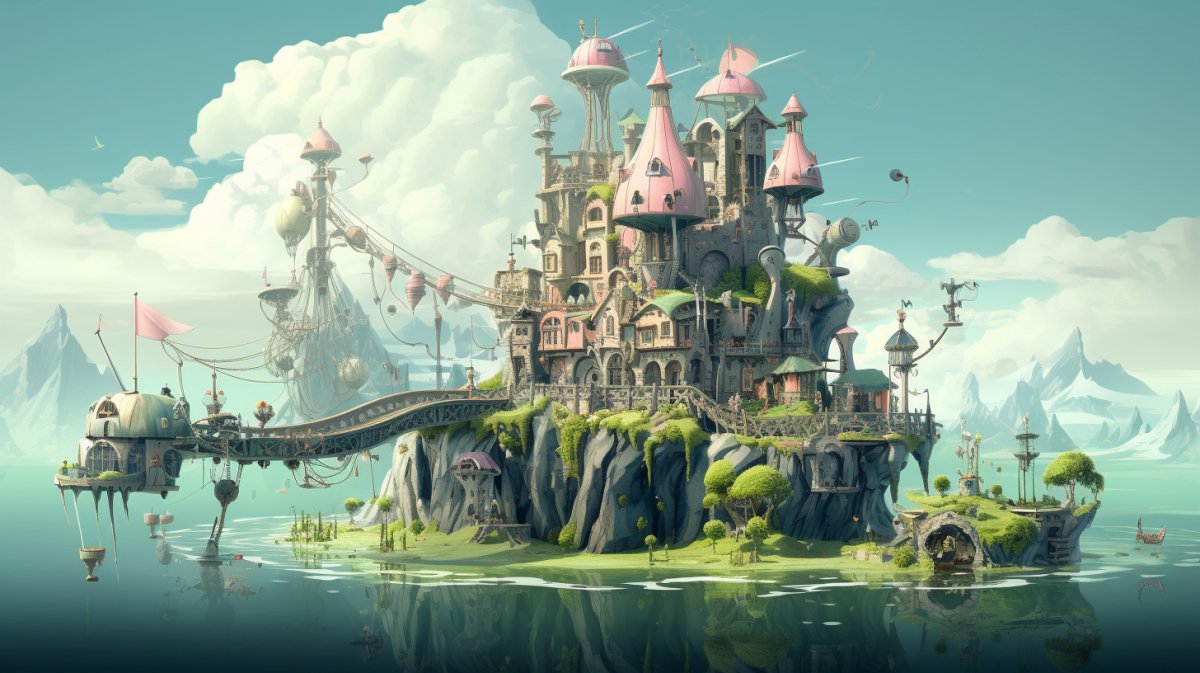
Everything you need to know about role-playing games
Introduction :
Welcome to the exciting world of role-playing games! Get ready to embark on thrilling adventures where your imagination will be your best ally. In this comprehensive guide, we'll explore the basics of role-playing games and provide you with all the information you need to get started in this immersive experience.
Definition of role play:
Role-playing is a form of entertainment where you play as a fictional character in an imaginary world. You become the hero or heroine of your own story, making decisions and having adventures as you go. It's a real journey where you explore fantastic universes, solve puzzles, face creatures and interact with other characters, whether other players or the game master.
The importance of imagination and storytelling:
At the heart of role-playing games are two essential elements: imagination and storytelling. Your imagination is the key to bringing your character and the world in which you live. It's as if you were transported into a book or a movie, only this time you are the protagonist, able to influence the course of the story.
Storytelling also plays a crucial role. You are both actor and spectator of your own adventure, actively participating in its construction. You narrate your character's actions, describe their emotions, interact with other characters, and react to events unfolding around you. It's a real acting game where you develop your creativity and your ability to improvise.
The different types of role-playing games:
Role-playing games exist in different forms, each offering a unique experience:
- Tabletop (paper) role-playing games: These classic games are played around a table, in the company of other players and a game master. You use dice, character sheets and rulebooks to guide your actions. The advantage of this format is the proximity and direct interaction with other players.
- Online role-playing games: With the advent of the digital age, many role-playing games have migrated to online platforms. You can play with players from all over the world, share scenarios, interact via text chats or chat rooms, and even use specific tools to facilitate online games.
- Role-playing games in virtual reality: Thanks to virtual reality, you can literally dive into the world of the game. Equipped with a helmet and special controllers, you interact with a virtual three-dimensional environment, where you can move, fight and solve puzzles as if you were really there.
Now that we've laid the groundwork for role-playing games, let's explore more about creating your character and the gameplay mechanics needed for a successful experience.
The different game worlds
Role-playing games offer a multitude of universes in which you can dive and explore fascinating worlds. Each universe has its own characteristics, atmosphere and types of adventures. Here is an overview of some popular universes:
Medieval-fantasy role-playing games:
Explore the worlds of heroic fantasy, where magic, fantastical creatures and epic quests await. In these universes, you can embody fearless knights, powerful wizards or mysterious elves. Dive into distant lands, discover warring kingdoms and face fearsome dragons. Among the most popular medieval fantasy roleplaying games are Dungeons & Dragons, Pathfinder and Warhammer Fantasy Roleplay.
Contemporary role-playing games:
If you prefer a more realistic setting, contemporary role-playing games are for you. They take place in our modern world, with urban intrigue, conspiracies and contemporary challenges. You can play detectives, spies, superheroes, or even characters inspired by real life. For example, the contemporary role-playing game Vampire: The Masquerade lets you play as vampires in the darkness of modern society.
Science fiction role-playing games:
For lovers of futuristic technologies and intergalactic adventures, science fiction role-playing games offer captivating universes. Explore alien worlds, pilot spaceships and battle cybernetic enemies. The possibilities are limitless ! Some of the most popular sci-fi RPGs include Shadowrun, Star Wars: Empire's Edge, and Eclipse Phase.
Essential accessories and resources
To fully live your role-playing experience, there are certain accessories and resources that can be useful. Here are some things to consider:
Dice and other accessories:
Dice are essential tools in role-playing games. They determine the success or failure of your actions. The most commonly used dice are six-sided dice (D6), twenty-sided dice (D20), and ten-sided dice (D10). Every roleplaying game has its own dice needs, so make sure you have the right dice set for your game. In addition to dice, you can also use other optional accessories such as game mats, figurines or markers to visualize combats and movements.
Rulebooks and Scenarios:
Each role-playing universe has its own specific rules. Rulebooks are indispensable resources that describe game mechanics, character traits, powers, and skills. They also provide tips for the game master and players
. Make sure you get the rulebook for the universe you want to play in.
In addition to rulebooks, you can also find pre-written scenarios and campaigns that will guide you on your adventures. These resources allow you to quickly dive into the action without having to create everything yourself. However, remember that improvisation and creativity are also important elements in role-playing games.
The practice of role-playing
Now that you have the basics and the necessary resources, let's move on to practicing role-playing.
How to find a playgroup:
To play a role-playing game, you will need a group of players. You can start by looking for role playing clubs or associations in your area. They often organize regular meetings where you can meet other enthusiasts and form a group. In addition, online platforms specializing in role-playing games allow you to find gaming partners, whether for in-person or online games.
Advice for the game master:
The game master (GM) plays a crucial role in role-playing games. He is the one who creates and animates the universe, manages the non-player characters and guides the players through their adventures. As a GM, it's important to create engaging scenarios, balance challenges, and foster player interaction. Feel free to use storytelling techniques, incorporate surprising elements, and adapt to player actions to make the experience more immersive.
Tips for players:
As a player, it is important to communicate well and collaborate with the other members of your party. Work together to solve puzzles, plan your strategies and share your ideas. For deeper immersion, try putting yourself in your character's shoes. Think about their motivations, reactions, and personality, and act accordingly. Let your creativity run wild and don't be afraid to take initiative.
By exploring different universes, using the right accessories and playing with an enthusiastic group, you will live unforgettable adventures in the world of role-playing games. Get ready to push the limits of your imagination and discover epic stories where you are the hero.



Leave a comment
This site is protected by hCaptcha and the hCaptcha Privacy Policy and Terms of Service apply.